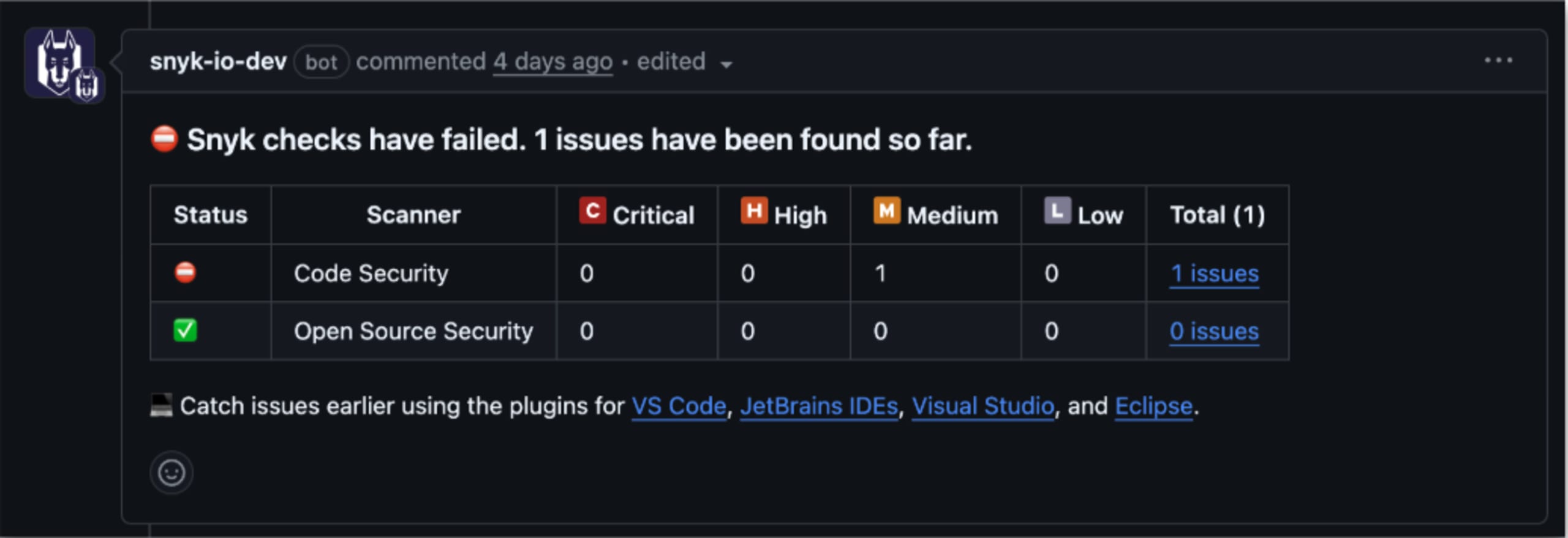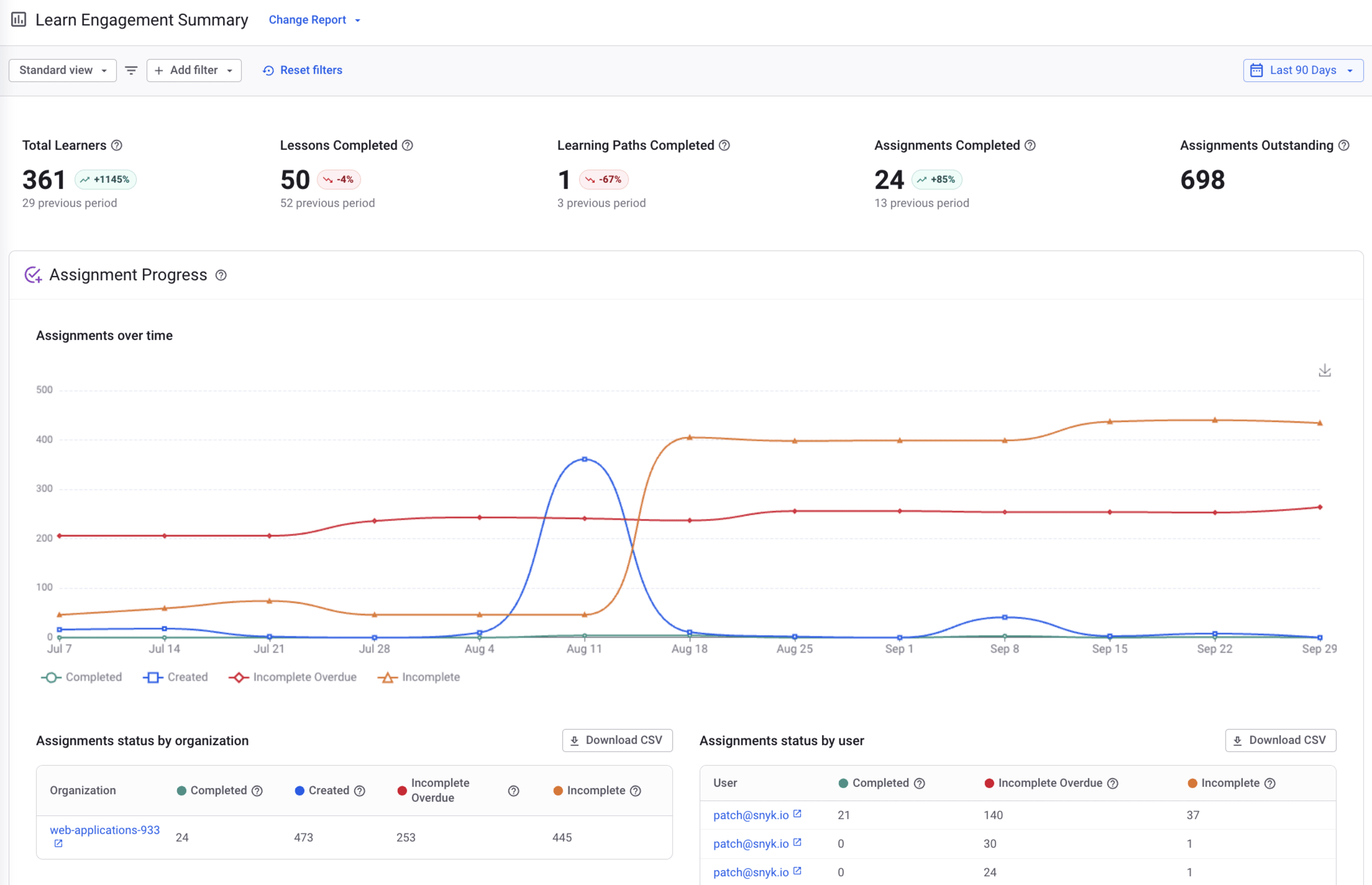Redesigned summary comments for pull requests
We're excited to introduce a new design for PR summary comments, which will give developers and reviewers a clearer, more organized view of their PR check results.
Streamlined summaries: Results are now displayed in a simple table, with links to the full test report and the number of issues per scan type. This helps teams quickly see whether a PR includes open-source vulnerabilities, license issues, or code vulnerabilities, and then dive deeper into the details in Snyk.
Cleaner experience: The banner has been removed, making it easier to see PR check results at a glance, even if they're being consumed by other integrations (like Slack notifications).
The new design for summary comments is enabled by default, and is available across all supported SCMs.

We're excited to see how this helps your teams streamline code reviews and address issues more efficiently!
Mayank Khera | Senior Product Manager
